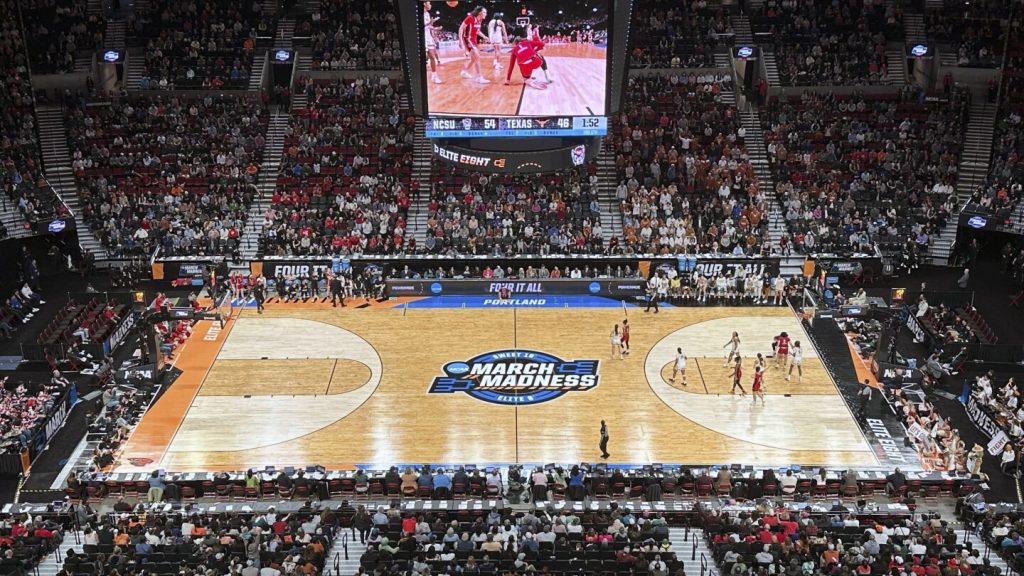The NCAA acknowledged on Monday that there was a mistake with one of the 3-point lines on the court used for the women’s basketball regionals in Portland, Oregon. The line was about 9 inches short of regulation at its apex, due to an error by the contractor responsible for making the courts used throughout March Madness. This mistake went unnoticed for the first four games played on the court, including the Elite Eight matchup between Texas and North Carolina State. The error was corrected before the UConn-USC game to determine the final spot in the Final Four.
The NCAA uses Connor Sports to supply and install the courts for March Madness events. It was identified that the marking used to draw the line at the top of the arc in the center of the court was too short, resulting in the discrepancy. The contractor responsible for the mistake was not specifically named in the statement provided by the NCAA. The inaccuracy was discovered before the Texas-N.C. State game, and coaches agreed to continue the game as scheduled despite the mismatched 3-point lines. N.C. State ultimately won the game and advanced to the Final Four.
The NCAA issued an apology for the error and the length of time it went unnoticed. The organization vowed to work with all of its suppliers and vendors to establish additional quality control measures to prevent such mistakes in future tournaments. The mishap with the court in Portland added to a series of controversies and off-the-court issues that have surfaced during the women’s NCAA Tournament, including instances of racial harassment and complaints about inconsistent officiating. The tournament has also seen record viewership driven by star players like Caitlin Clark, Paige Bueckers, and Angel Reese.
Teams playing on the court with the incorrect 3-point line had a lower shooting percentage compared to those playing on the correctly measured line. However, some coaches expressed that they did not believe the error had a significant impact on the games. Despite the unusual situation, teams, including Baylor, Gonzaga, and Duke, adapted to the circumstances and played their games in Portland. Connor Sports, the hardwood sports flooring company responsible for the mistake, apologized and took immediate corrective action following the discovery of the error.
This incident was part of a challenging week for the NCAA, which has been working to address disparities between its administration of the men’s and women’s basketball tournaments. The misdrawn 3-point line at Moda Center further highlighted the need for improved quality control measures to ensure the integrity of the games. While the error was rectified before the Final Four matchups, the NCAA faced criticism from coaches and fans for allowing such a significant mistake to occur. Moving forward, the organization is committed to preventing similar incidents in future tournaments to uphold the standard of competition and fairness for all teams involved.
The NCAA Women’s Tournament has been marked by both on-court action and off-court controversies this year. While the impressive performances of top players have drawn in viewers, issues such as officiating concerns, off-court harassment, and now a court marking error have put a spotlight on the challenges faced by the organization in managing the high-profile event. Despite these challenges, the tournament has showcased the talent and determination of women’s college basketball players from across the country, providing a platform for the next generation of stars to shine on the national stage.


